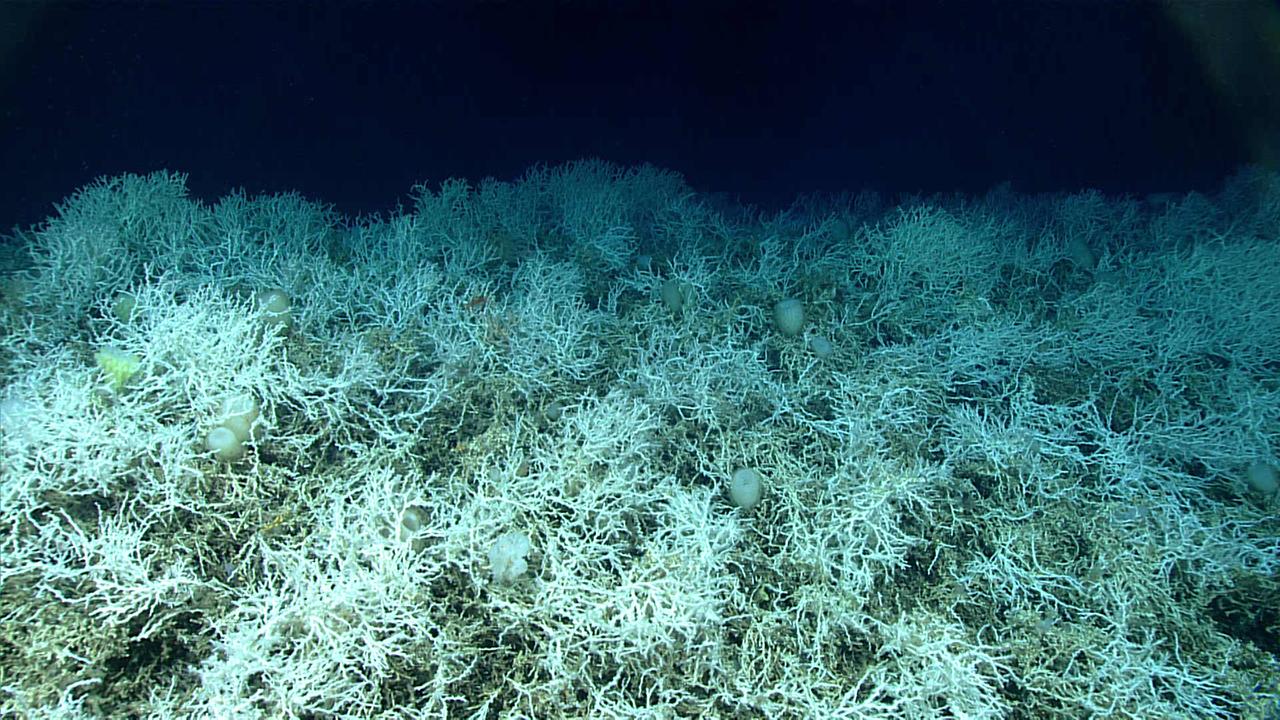Researchers have made a sensational discovery off the east coast of the USA: They have discovered one of the world’s largest cold-water coral reefs. The reef is larger than Mecklenburg-Western Pomerania.
Marine researchers say they have discovered one of the world’s largest cold-water coral reefs off the east coast of the United States. The reef has an area of 26,000 square kilometers, said the weather and oceanographic agency NOAA. It is therefore slightly larger than the federal state of Mecklenburg-Western Pomerania.
The reef stretches from Miami in southern Florida to the city of Charleston in South Carolina, almost 800 kilometers further north. So far, individual parts, including so-called coral hills, have been known near the coast and in shallower waters. But only after the Blake Plateau was fully mapped did it become clear “how extensive this habitat is and how many of these coral hills are connected to each other,” it said.
Researchers have collected ten years of data
The coral reef is at a depth of 500 to 1,000 meters and is therefore not reached by sunlight. According to the researchers, cold-water corals grow at temperatures between four and 14 degrees in the darkness of the deep sea. The so-called cnidarians that live there feed on suspended matter in the water. Corals belong to the cnidarian phylum.
The discovery was preceded by ten years of systematic mapping of the area and more than 20 exploratory dives. In addition to NOAA, other US authorities were also involved.
Reefs are threatened by resource extraction and fishing
So far, cold-water coral reefs have been discovered off the coasts of at least 41 countries, the study said. Scientists assumed it would spread even further, but most of the deep sea had not yet been explored or mapped. Deep sea is anything 200 meters below the surface of the water.
According to the researchers, the reefs at depth grow slowly and are particularly vulnerable to physical damage from human activities. The biggest threats to cold-water corals include fishing with bottom trawling nets, the mining of raw materials from the deep sea and the laying of underwater cables and pipelines.




